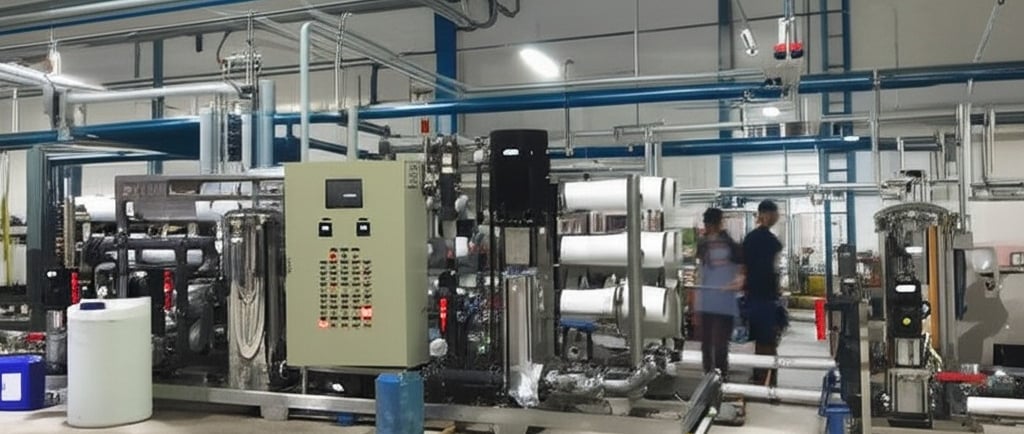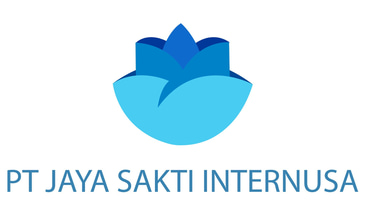Reverse Osmosis and Nanofiltration: The Future of Clean Water Treatment


Water has always been a critical resource, but in today’s industrialized world, clean water treatment is more important than ever. Growing populations, climate change, and rapid industrial expansion place enormous stress on water supplies, demanding more efficient and reliable filtration technologies. Two methods are now leading the transformation of modern water treatment: Reverse Osmosis (RO) and Nanofiltration (NF). These technologies are increasingly being adopted by industries, municipalities, and even households, setting a new benchmark for clean and sustainable water solutions.
As a trusted total solution provider for water treatment systems, PT Jaya Sakti Internusa has long recognized the potential of RO and NF in shaping the future. With international certifications and proven expertise, the company ensures that clients can access water treatment solutions that meet both regulatory requirements and long-term sustainability goals.
Understanding the Principles of Reverse Osmosis
Reverse Osmosis is a process that uses a semi-permeable membrane to separate dissolved salts, bacteria, and impurities from water. By applying pressure greater than the natural osmotic pressure, water molecules are forced through the membrane, leaving contaminants behind. The result is exceptionally pure water that meets strict industrial and health standards.
Industries such as pharmaceuticals, food and beverage, power generation, and electronics heavily rely on RO technology. Its ability to consistently deliver high-quality water makes it a trusted solution in applications where precision and purity are critical. Moreover, as environmental regulations tighten worldwide, RO helps organizations remain compliant by significantly reducing pollutants in discharged water.
The growing demand for RO is also driven by global sustainability concerns. According to UN Water, more than two billion people live in countries experiencing high water stress. Reverse Osmosis is emerging as a scalable solution for desalination, wastewater reuse, and industrial recycling—addressing both water scarcity and environmental impact.
The Rise of Nanofiltration in Modern Industries
Nanofiltration, while similar in principle to RO, has distinct features that make it invaluable in specific applications. NF membranes are designed to reject divalent and larger ions, such as calcium, magnesium, and sulfate, while allowing some monovalent salts like sodium and chloride to pass through. This balance makes NF ideal for softening hard water, reducing organic matter, and treating industrial wastewater without producing completely demineralized water.
In industries where partial mineral content is desirable—such as beverage production or agricultural irrigation—NF provides an efficient middle ground between conventional filtration and RO. It reduces scale-forming elements, lowers operational costs, and prolongs equipment lifespan. Additionally, NF often requires lower operating pressures compared to RO, which translates into reduced energy consumption and cost savings.
As environmental sustainability becomes a priority, NF is also being adopted for advanced wastewater treatment and water recycling projects. Its ability to selectively remove pollutants while maintaining certain minerals supports industries in meeting both environmental standards and operational efficiency goals.
Reverse Osmosis vs. Nanofiltration: Complementary Technologies
While RO and NF are often compared, they should be viewed as complementary technologies rather than competitors. RO excels in producing ultra-pure water, making it indispensable in industries with zero tolerance for impurities. NF, on the other hand, provides a balance between purity and mineral retention, making it cost-effective for applications where complete desalination is unnecessary.
A combined system using both RO and NF can deliver the best of both worlds—ultra-clean water where required and mineral-balanced water for specific industrial needs. For example, NF can be used as a pretreatment step to reduce scaling and fouling before water enters an RO unit, significantly enhancing system performance and lifespan.
By understanding the strengths of each technology, industries can design customized water treatment systems that optimize efficiency, minimize costs, and achieve long-term sustainability.
Industrial Applications of RO and NF Systems
Both Reverse Osmosis and Nanofiltration are now integral to a wide range of industrial applications:
Pharmaceuticals & Healthcare: Producing ultrapure water for drug manufacturing, laboratory use, and sterile environments.
Food & Beverage: Ensuring water quality for brewing, bottling, and processing while preserving essential minerals where needed.
Power Generation: Supplying high-purity water for boilers and cooling towers to prevent scaling and corrosion.
Municipal Water Supply: Treating groundwater, surface water, and seawater to provide safe drinking water.
Agriculture & Irrigation: Delivering water with optimized mineral content to enhance crop yield and soil health.
Electronics & Semiconductors: Creating ultrapure water required for delicate manufacturing processes.
The versatility of these systems demonstrates why they are increasingly recognized as the cornerstone of modern water treatment solutions.
Sustainability and Environmental Impact
One of the most compelling reasons for adopting RO and NF technologies lies in their environmental benefits. Traditional water treatment often relies on chemical-intensive methods, which can generate secondary pollution. In contrast, RO and NF minimize chemical usage, providing cleaner and more sustainable alternatives.
By recycling wastewater and enabling desalination, these systems help industries reduce their freshwater intake and preserve local ecosystems. They also support compliance with international environmental standards, including ISO 14001 for environmental management systems. With climate change intensifying water scarcity, the adoption of such technologies is not just a trend but a necessity for long-term industrial resilience.
The Role of PT Jaya Sakti Internusa in Driving Clean Water Innovation
For over two decades, PT Jaya Sakti Internusa has positioned itself as a total solution provider for water treatment systems in Indonesia. The company’s expertise spans system design, installation, maintenance, and after-sales support, ensuring that clients receive reliable solutions tailored to their needs.
Backed by ISO and SNI certifications, PT Jaya Sakti Internusa guarantees that its water treatment solutions meet the highest international and national standards. By integrating advanced technologies like Reverse Osmosis and Nanofiltration into their offerings, the company helps industries achieve both operational excellence and environmental compliance.
With a focus on innovation, sustainability, and customer-centric service, PT Jaya Sakti Internusa continues to be a trusted partner for industries seeking long-term water solutions.
Looking Ahead: The Future of Water Treatment
The future of water treatment will undoubtedly be shaped by technologies like Reverse Osmosis and Nanofiltration. As industries face mounting challenges in resource management, environmental compliance, and operational efficiency, these solutions will become even more vital.
Advancements in membrane technology, energy recovery systems, and digital monitoring tools promise to further improve the performance and sustainability of RO and NF systems. Industries that adopt these technologies today will not only secure their water supply but also demonstrate leadership in sustainability and corporate responsibility.
By partnering with certified solution providers such as PT Jaya Sakti Internusa, organizations can stay ahead of the curve and ensure that their water treatment infrastructure remains efficient, reliable, and future-ready.
Conclusion
Reverse Osmosis and Nanofiltration are redefining how industries view and manage water treatment. Their ability to deliver clean, reliable, and sustainable water solutions makes them indispensable for the future. As global challenges around water scarcity and environmental impact intensify, adopting these technologies is no longer optional—it is essential.
With trusted providers like PT Jaya Sakti Internusa leading the way, industries across Indonesia and beyond can confidently embrace a cleaner, safer, and more sustainable water future.
